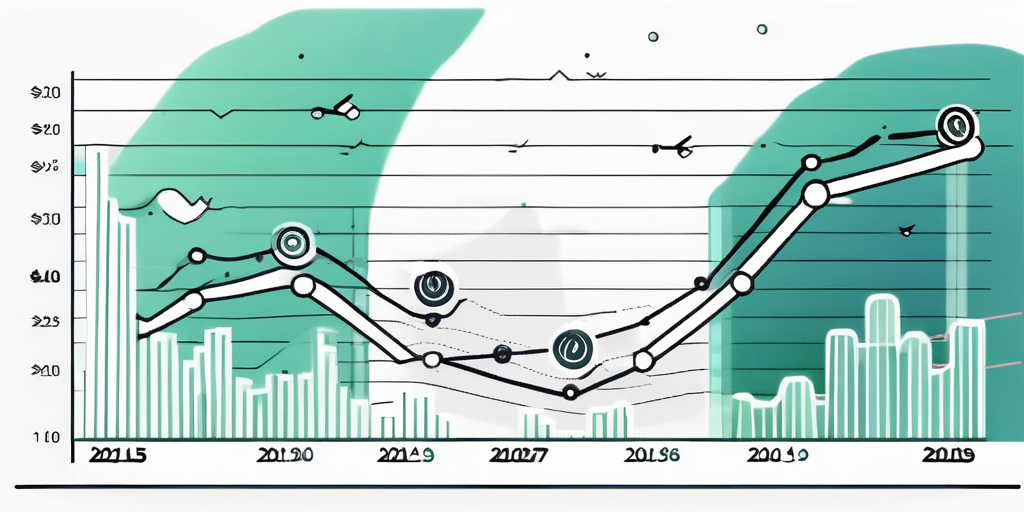Flight Cancellation Data: Analyzing the Impact and Trends
Explore insightful flight cancellation data. Discover trends and patterns to better understand the impact of disruptions on air travel.
In recent years, flight cancellations have become a common occurrence in the aviation industry. Understanding and analyzing flight cancellation data is crucial for airlines, passengers, and industry stakeholders. This article explores the importance of flight cancellation data, key components of such data, and the impact and trends associated with flight cancellations.
Understanding Flight Cancellation Data
The Importance of Flight Cancellation Data
Flight cancellation data provides valuable insights into the functioning of the aviation industry. By analyzing this data, airlines can identify recurring patterns and make informed decisions to improve their operations. Passengers can also benefit from this data by gaining a better understanding of the factors that contribute to flight cancellations.
Key Components of Flight Cancellation Data
Flight cancellation data encompasses various factors, including the reasons for cancellations, the number of affected flights, and the impact on passengers and airlines. The reasons for cancellations can vary, ranging from severe weather conditions to mechanical issues or crew shortages. By analyzing these reasons, airlines can take proactive measures to mitigate cancellations and minimize disruptions.
One of the key components of flight cancellation data is the number of affected flights. This data provides airlines with a clear picture of the scale of cancellations and allows them to allocate resources accordingly. For example, if a particular route consistently experiences a high number of cancellations due to weather conditions, airlines can consider adjusting their schedules or investing in better equipment to handle such situations.
Another important aspect of flight cancellation data is the impact on passengers and airlines. When flights are canceled, passengers may experience inconvenience, delays, or even missed connections. By analyzing this data, airlines can identify trends and patterns that may help them improve their customer service and minimize the impact on passengers. For instance, if a certain type of cancellation leads to a significant number of missed connections, airlines can work on developing alternative travel arrangements or providing better communication to affected passengers.
Furthermore, flight cancellation data allows airlines to assess their overall performance and identify areas for improvement. By tracking the reasons for cancellations, airlines can identify recurring issues and take proactive measures to address them. This could involve implementing better maintenance practices, increasing staffing levels, or improving training programs for crew members. Ultimately, by analyzing flight cancellation data, airlines can strive to provide a more reliable and efficient service to their passengers.
Analyzing the Impact of Flight Cancellations
Economic Consequences of Flight Cancellations
 Flight cancellations have significant economic implications for both airlines and the broader economy. The cost of rebooking passengers, providing accommodation, and compensating affected travelers can add up quickly. This not only affects the airlines' bottom line but also puts a strain on their resources. The financial burden of these cancellations can be substantial, especially for smaller airlines that may not have the same financial reserves as larger carriers.
Flight cancellations have significant economic implications for both airlines and the broader economy. The cost of rebooking passengers, providing accommodation, and compensating affected travelers can add up quickly. This not only affects the airlines' bottom line but also puts a strain on their resources. The financial burden of these cancellations can be substantial, especially for smaller airlines that may not have the same financial reserves as larger carriers.
Furthermore, the ripple effect of flight cancellations can extend beyond the airline industry. When flights are canceled, it disrupts travel plans and can lead to a decrease in consumer spending in the affected regions. For example, if a flight cancellation prevents a group of tourists from reaching their intended destination, they may decide to cancel their hotel reservations, skip out on planned activities, and spend less money in the local economy. This can have a domino effect on local businesses, particularly those that heavily rely on tourism.
Social Impact of Flight Cancellations
Flight cancellations can cause considerable inconvenience and frustration for passengers. Travel plans can be disrupted, leading to missed connections, important events, and increased stress levels. Imagine a scenario where a family of four has meticulously planned a vacation, only to have their flights canceled at the last minute. Not only do they have to deal with the disappointment of not being able to go on their trip, but they also have to scramble to make alternative arrangements, which can be time-consuming and emotionally draining.
Moreover, the social impact of flight cancellations goes beyond individual passengers. It can affect entire communities and even countries. For instance, if a major international conference or event is scheduled to take place in a particular city, flight cancellations can hinder the attendance of important participants, leading to missed networking opportunities and potential economic losses for the host city. Additionally, flight cancellations can disrupt the plans of individuals who rely on air travel for work, such as business professionals, medical personnel, and international students, further exacerbating the social impact.
By analyzing the social impact of flight cancellations, airlines can prioritize passenger needs and enhance customer satisfaction. Understanding the emotional toll that flight cancellations can have on passengers allows airlines to develop strategies and contingency plans to minimize the negative effects. This can include providing timely and accurate information to affected passengers, offering alternative travel options, and implementing efficient rebooking processes. By doing so, airlines can not only mitigate the social impact of flight cancellations but also build trust and loyalty among their customer base.
Trends in Flight Cancellations
Flight cancellations are a recurring challenge for airlines, and understanding the underlying trends can be crucial for effective resource allocation and operational strategies. In addition to seasonal patterns, flight cancellations also exhibit fascinating geographical variations that provide valuable insights into the complexities of air travel.
Seasonal Trends in Flight Cancellations
One of the most prominent factors influencing flight cancellations is the change in seasons. As winter blankets certain parts of the world with snowstorms and icy conditions, the number of cancellations tends to skyrocket. Adverse weather conditions pose significant risks to flight operations, making it imperative for airlines to analyze these seasonal trends meticulously.
By closely monitoring the seasonal patterns, airlines can proactively allocate resources and develop robust strategies to minimize disruptions during peak cancellation periods. For example, they can enhance de-icing procedures, invest in advanced weather prediction technologies, and collaborate with airports to streamline operations during inclement weather. These proactive measures not only help in reducing cancellations but also contribute to enhancing passenger satisfaction and maintaining a reliable flight schedule.
Geographical Trends in Flight Cancellations
Flight cancellations also display intriguing geographical variations that can be attributed to various factors. Certain regions, such as major metropolitan areas or airports located in mountainous terrains, may experience higher cancellation rates due to air traffic congestion or infrastructure limitations.
Analyzing these geographical trends enables airlines to identify specific areas where additional investments or operational adjustments are needed to reduce cancellations. For instance, airports experiencing frequent cancellations due to congestion can collaborate with air traffic control authorities to optimize traffic flow and reduce delays. Similarly, airports situated in challenging terrains can invest in specialized equipment and training for pilots to navigate safely through adverse weather conditions.
Furthermore, understanding the geographical variations in flight cancellations can help airlines develop contingency plans and alternative routing options. By having a comprehensive understanding of the regions that are more prone to cancellations, airlines can efficiently reroute flights and minimize passenger inconvenience.
In conclusion, flight cancellations are not merely random events but rather exhibit distinct seasonal and geographical trends. By analyzing these patterns and implementing appropriate strategies, airlines can mitigate the impact of cancellations, enhance operational efficiency, and provide a more reliable travel experience for passengers.
Predictive Analysis of Flight Cancellations
The Role of Weather in Flight Cancellations
 Weather plays a significant role in flight cancellations. Severe storms, hurricanes, or even dense fog can force airlines to cancel flights in the interest of passenger safety. By leveraging weather data and predictive analytics, airlines can better anticipate potential cancellations and improve their planning and communication with passengers.
Weather plays a significant role in flight cancellations. Severe storms, hurricanes, or even dense fog can force airlines to cancel flights in the interest of passenger safety. By leveraging weather data and predictive analytics, airlines can better anticipate potential cancellations and improve their planning and communication with passengers.
For example, imagine a scenario where an airline operating in a region prone to sudden thunderstorms utilizes advanced weather forecasting models. These models take into account various atmospheric variables, such as temperature, humidity, and wind patterns, to predict the likelihood of severe weather conditions. Armed with this information, the airline can proactively cancel or reschedule flights, minimizing disruptions and ensuring the safety of their passengers and crew.
The Impact of Airline Policies on Flight Cancellations
Airlines' internal policies, such as crew scheduling or maintenance procedures, can also impact flight cancellations. Analyzing the impact of these policies on cancellations can help airlines identify areas for improvement and optimize their operations. Additionally, policy adjustments may be necessary to enhance the overall reliability of flights and minimize cancellations.
Consider a situation where an airline experiences a high number of flight cancellations due to crew scheduling conflicts. By conducting a thorough analysis of their crew scheduling policies, the airline can identify potential bottlenecks or inefficiencies. This analysis may reveal the need for better crew management systems or the implementation of more flexible scheduling practices to ensure an adequate number of crew members are available for each flight.
Furthermore, maintenance procedures can also contribute to flight cancellations. Airlines that prioritize proactive maintenance and invest in regular inspections and repairs can significantly reduce the risk of unexpected technical issues leading to cancellations. By closely monitoring the impact of maintenance procedures on flight cancellations, airlines can fine-tune their processes and ensure that their aircraft are in optimal condition, minimizing the likelihood of disruptions.
Mitigating the Impact of Flight Cancellations
Strategies for Reducing Flight Cancellations
 There are several strategies that airlines can adopt to reduce the likelihood of flight cancellations. Improved maintenance practices, contingency plans for crew shortages, and enhanced communication with passengers during disruptions are just a few examples. By implementing these strategies, airlines can minimize cancellations and maintain a high level of customer satisfaction.
There are several strategies that airlines can adopt to reduce the likelihood of flight cancellations. Improved maintenance practices, contingency plans for crew shortages, and enhanced communication with passengers during disruptions are just a few examples. By implementing these strategies, airlines can minimize cancellations and maintain a high level of customer satisfaction.
The Future of Flight Cancellations: Technological Innovations and Policies
The aviation industry is continually evolving, and technological advancements are revolutionizing how airlines deal with cancellations. Automation, artificial intelligence, and advanced forecasting tools are aiding in predicting and managing cancellations. Additionally, regulatory policies that prioritize passenger rights and encourage industry-wide transparency can significantly reduce flight cancellations in the future.
In conclusion, flight cancellation data provides valuable insights into the impact and trends associated with flight disruptions. By analyzing this data, airlines can implement proactive measures to reduce cancellations, mitigate economic and social consequences, and enhance the overall travel experience for passengers.
Get the Compensation You Deserve with ClaimCompass
If you've experienced a flight cancellation, delay, or overbooking, you may be entitled to up to 600€ in compensation. ClaimCompass specializes in helping air passengers assert their rights under EU Regulation 261/2004. Our hassle-free process starts with a free check of your eligibility using our compensation calculator. We'll handle your claim from start to finish, including court proceedings if necessary. Remember, our service is risk-free: if you don't get compensated, you owe us nothing. If we succeed, we only retain a 35% commission (incl. VAT). Don't let flight disruptions set you back—submit a claim with ClaimCompass today and ensure you're compensated fairly.
